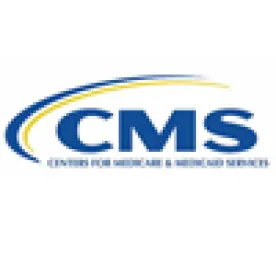In this issue, Polsinelli’s 340B and Reimbursement teams provide an update on the most recent developments in the ongoing 340B /Part B Payment litigation and also highlight recent Government Accountability Office (“GAO”) interest in covered entities duplicate discount prevention efforts. Below is a recap of both developments and practical guidance related to both issues as well as a reminder to submit comments to CMS’s recent hospital co-location guidance:
Hospital 340B Entities Secure a Partial Victory in 340B / Part B Payment Litigation
Last week, hospital covered entities secured another partial victory in the ongoing litigation with the Centers for Medicare and Medicaid Services (“CMS”) over recent payment cuts to 340B drugs, but it is clear there may be a long road ahead. The D.C. District Court sided with hospitals by holding that the 2019 OPPS Final Rule’s reimbursement cut to Part B 340B drugs was unlawful. Building on its prior opinion declaring the 2018 OPPS 340B reimbursement reductions unlawful, the Court held that the Secretary of the U.S. Department of Health and Human Services (“HHS”) had again overstepped his authority when HHS made changes to the reimbursement methodology for separately payable 340B drugs.
As a reminder, CMS slashed reimbursement for 340B drugs by nearly 30% from Average Sales Price (“ASP”) plus 6%, to ASP minus 22.5%. This continues to have tremendous financial consequences for many safety net hospitals, many of whom continue to lose millions in much needed reimbursement.
Please be aware that this was only a partial victory for covered entities. While the Court imposed an injunction, it refused to vacate the rules and instead, it sent the issue back to HHS to resolve. The Court reasoned that unresolved legal issues surrounding budget neutrality and retroactively increasing the 2018 and 2019 340B rates cautioned against a judicially prescribed remedy at this time (i.e., the Court refused to just set aside the OPPS rules).
The Court remanded the issue to HHS to determine the least disruptive way to unwind this mess and address the 2018 and 2019 underpayments. Pursuant to the Court’s order, HHS must submit a status report on the agency’s progress in resolving the issue on or before August 5, 2019. Importantly, the Court noted that it retains jurisdiction over this matter and may reconsider the remedy if the HHS fails to fulfill its responsibilities in a prompt manner. The Plaintiffs have since filed a motion for a more definitive schedule that aligns with HHS’s OPPS rulemaking process whereby HHS typically releases a proposed rule in July and a final rule in November.
Key takeaways for impacted covered entities:
-
Continue to report modifiers and expect ASPminus 22.5% reimbursement (when applicable) until HHS or the Court resolves these issues.
-
Be prepared to comment on proposed rules concerning remedies or additional payment cuts.
-
Expect this saga to continue for quite some time. HHS appealed the Court’s initial ruling and will likely appeal the Court’s most recent ruling because the Court’s opinion could have widespread implications on HHS’s rulemaking authority, so expect protracted appeals.
-
Providers should preserve their right to payments on individual Part B claims by filing appeals with their Medicare Administrative Contractors (MACs). We are aware that several MACs have published formal statements indicating that they will deny 340B appeals. Please note that covered entities may still appeal in order to reach later and more effective stages in the appeal process.
-
HHS is clearly dissatisfied with this ruling, and we anticipate recoupment of underpayments may be challenging, so implementing an effective claims appeal strategy is imperative.
GAO Interviews Covered Entities Regarding Duplicate Discount Prevention
Covered Entities beware - the U.S. GAO is conducting interviews to assess covered entity efforts to prevent duplicate discounts in the Medicaid Drug Rebate and 340B Drug Pricing Programs. Now is the time to prepare even if you did not receive the GAO’s interview request as duplicate discount prevention will continue to be a hot topic for the foreseeable future.
Drug manufacturers are pushing covered entities and states more aggressively to identify and resolve duplicate discounts in the Medicaid managed care (MCO) space, and the GAO’s exercise is a clear indicator that the topic is a very high priority in D.C. CMS and the Health Resources and Services Administration (“HRSA”) both have signaled that they expect drug manufacturers, covered entities and state Medicaid agencies to work together to formulate a method to prevent duplicate discounts in the MCO environment. HRSA has gone as far as saying they intend to issue guidance. To-date, that guidance does not exist, so stakeholders continue to pursue different strategies, and we believe the GAO’s exercise is intended to gather data on how to best ensure consistency.
As a best practice, covered entity 340B teams and leadership should have a detailed response strategy and talking points prepared if called to provide testimony or participate in informal discussions with government agencies or committees such as the GAO. In this instance, covered entities should evaluate:
-
Current legal, regulatory and policy expectations regarding duplicate discounts.
-
Current performance in meeting such expectations, and any challenges they have encountered in preventing duplicate discounts.
-
Whether those challenges are related to implementing state or internal requirements or procedures for preventing 340B duplicate discounts, internal compliance efforts, or governmental guidance or lack thereof.
The GAO is speaking to covered entities to learn more about their policies and methods for identifying 340B drugs provided to Medicaid fee-for-service and managed care (MCO) beneficiaries in order to prevent duplicate discounts. The GAO has sent a list of questions to covered entities to help guide the discussions, and the list clearly demonstrates where the GAO is headed.
The questions focus on 1) background of a covered entity’s participation in the program, 2) state policy on use of 340B for Medicaid patients, 3) covered entity policy on use of 340B for Medicaid patients, 4) 340B program compliance, and 5) working with stakeholders.
Below is a brief overview of information that GAO is seeking to gather. The topics are extremely broad, so covered entities should prepare very targeted responses.
1. Background
GAO requests that covered entities provide a brief overview of the entity, including information about its 340B program participation. Some of the key background facts that GAO is seeking to gather include the length of 340B program participation, the number of child sites the entity has, the number of in-house pharmacies the entity has, whether the entity uses contract pharmacies to distribute 340B drugs and the number of contract pharmacies, and the number of Medicaid managed care plans with which the entity participates.
2. State Policy on use of 340B for Medicaid Patients
GAO requests that entities describe their state’s policy related to 340B drugs. Specifically, GAO requests that covered entities describe whether, under their state’s policy, they can or must use 340B drugs for Medicaid fee-for-service patients and how that policy relates to drugs dispensed by the covered entity’s in-house pharmacy, drugs dispensed by contract pharmacies, and provider administered drugs. Further, GAO asks covered entities to describe any instructions the state provides entities on how they are to identify 340B drugs provided to Medicaid fee-for-service patients so they can exclude them for rebates and how those instructions may differ among dispensing methods. GAO requests similar information related to the covered entity’s state policy regarding the use of 340B drugs for Medicaid managed care patients.
3. Covered Entity Policy on Use of 340B for Medicaid patients
GAO is looking for information on how covered entities implement their own policies to identify and reduce duplicate discounts in the 340B Program. GAO requests information on whether covered entities carve-in or carve-out 340B drugs for Medicaid fee-for-service and Medicaid managed care patients and the policy for drugs dispensed by in-house pharmacies, drugs dispensed by contract pharmacies, and provider-administered drugs. GAO also asks whether all of an entity’s child sites follow the same practice for carving in or carving out.
GAO also requests information related to how an entity that carves in 340B drugs for Medicaid patients identifies which drugs provided to Medicaid patients are 340B (for example, claims-level identifiers or provider-level identifiers), and how the method varies based on whether the patient is fee-for-service or managed care and the dispensing method of the drug. The GAO is seeking information related to challenges covered entities have encountered with any of these methods. GAO also requests information on how entities that carve out 340B drugs for Medicaid patients identify which patients are covered by Medicaid and should not be provided with 340B drugs, differences in identifying patients in fee-for-service vs. managed care, differences if the patient is receiving drugs at the covered entity vs. a contract pharmacy, and any challenges experienced in determining if a patient is enrolled in Medicaid.
4. 340B Program Compliance
GAO is also seeking information related to covered entity compliance activities, including audits. GAO asks covered entities to describe any oversight activities related to the prohibition on duplicate discounts, like self-audits or independent audits, and whether the entity has identified any instances of potential duplicate discounts through such oversight and any corrective action(s) taken to address such issues. GAO also asks covered entities to describe any challenges the entity faces in preventing duplicate discounts and any other concerns related to the occurrence of duplicate discounts.
5. Working with Stakeholders
Lastly, GAO asks covered entities to describe how they work with various stakeholders, including state Medicaid agencies, drug manufacturers, and HRSA, with regard to 340B duplicate discounts. GAO asks covered entities to describe the extent which they communicate with state Medicaid agencies concerning 340B duplicate discounts, including reasons for contact and outcomes of such discussions. GAO also seeks information related to any manufacturer inquiries or audits related to suspicions of duplicate discounts as well as whether the covered entity has been the subject of a HRSA audit and findings of such audits. GAO also asks covered entities to address the sufficiency of guidance related to preventing duplicate discounts and whether any additional guidance from state Medicaid agencies, HRSA, and/or CMS would be beneficial.
Key takeaways:
-
Prepare – Covered entities, whether they received the GAO interview request or not, should take the opportunity to document and refine responses to the GAO’s questions. Going through this exercise, involving your public policy, legal and compliance teams, and developing a talking points document will pay dividends down the road and will likely reduce anxiety if asked to participate in a probing exercise.
-
Focus on what you do best – Preventing duplicate discounts is challenging given the number of parties involved and the lack of consistent regulations.
-
Engage legal and compliance – Use the necessary resources to confirm actual and binding legal requirements regarding duplicate discounts, particularly in the MCO space. Don’t wait until asked by a manufacturer or an agency, and don’t rely on what others do.
Comments Due July 2, 2019 – CMS Provider-Based / Co-Location Guidance






 />i
/>i
